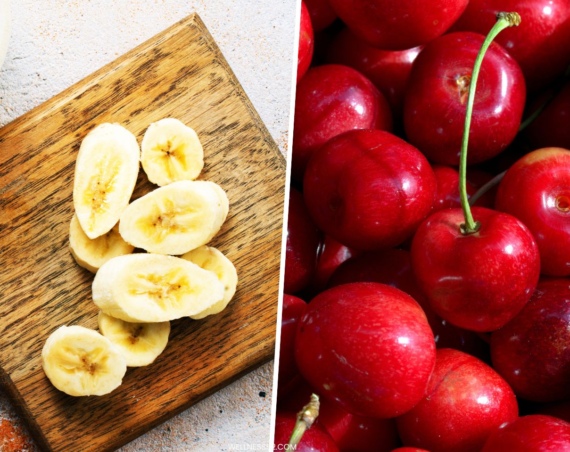
One of the fears of growing older is losing memory and cognitive decline. While aging is inevitable, aging well and keeping your brain healthy can be optional.
Well, there may be ways we can reduce our cognitive decline as we age.
Our brain uses roughly 20% of the body’s energy, which means our food intake matters.
We need to properly fuel our bodies and brain to stay healthy.
“Omega-3 fatty acids, for example, help build and repair brain cells. Antioxidants reduce cellular stress and inflammation, which are linked to brain aging and neurodegenerative disorders, such as Alzheimer’s disease”.
You may also like:
Study Shows Doing This Simple Exercise May Prevent Dementia
The Surprising Link Between Your Calf Muscles and Dementia
One Food to Reduce Cognitive Decline

According to a study from researchers at the University of South Australia, a diet high in nuts, may over time lead to better cognitive function in older adults.
The study found by eating more than 10 grams or roughly two teaspoons of nuts per day older individuals could improve their cognitive function by up to 60% in comparison to those not eating nuts. Ultimately adverting the natural two-year cognition decline.
It was positively associated with better mental functioning, which includes improved thinking, reasoning, and memory.
This was one of the first studies to report an association between cognition and nut intake in older Chinese adults.
Specific nut studies are as follows:
According to Frank Sacks, a professor of cardiovascular disease prevention, he stated a diet that includes peanuts may help prevent age-related cognitive decline.
This professor leads the MIND trial, which is a research study lasting three years to compare the Mediterranean diet and DASH diet and their effects on brain health and cognitive decline.
Peanuts are considered legumes, that are rich in protein, healthy fats, fiber, vitamin e, and resveratrol. Resveratrol is a non-flavonoid antioxidant, which may have positive effects in helping prevent cancer, inflammation, and neurological diseases, including Alzheimer’s disease and Parkinson’s.
Oxidative stress and inflammation play important roles in the aging process, such as dementia.
Walnuts decrease oxidative stress by decreasing free radicals and boosting antioxidant defense (1).
Reducing the risk of dementia through dietary approaches is encouraging, however additional long-term research is needed to fully understand the connections between nuts and cognitive benefit or neurodegenerative delay.
Incorporating nuts into your daily meal plan can be a quick and easy way to get additional nutrients, such as omega-3 fatty acids and antioxidants.
Food for Dementia or Brain Health
The Mediterranean diet can help manage and control inflammation.
Incorporating fish, fruits, veggies, nuts, seeds, beans, olive oil, and fiber-rich foods, and reducing the number of processed foods can reflect what is involved in the Mediterranean diet.
Be sure to select the most vibrant and colorful fruits and vegetables to gain the most antioxidants and nutrients.
Here are a few foods that may help slow cognitive decline. These foods will also help you maintain a healthy lifestyle.
Oily Fish
Rich in Omega 3 fatty acids.
Examples of oily fish include salmon, mackerel, tuna, herring, and sardines. Olive oil is another way to obtain omega-3 fatty acids.
Omega 3 may help to lower blood pressure and LDL (bad cholesterol), reduce inflammation, and protect the brain and nervous system.
Dark Chocolate and Berries
Rich in antioxidants.
We naturally see an increase in free radicals as we age, however, the role of antioxidants is to reduce the number of free radicals within our body.
Dark chocolate contains flavanols or flavonoids which make your blood vessels more elastic. This can help to lower high blood pressure and potentially stop hypertension.
In addition, dark chocolate may help to reduce the risk of heart disease and stroke.
When you are purchasing dark chocolate make sure to look for 70% cocoa or more to gain the most nutrients.
Be aware of the servings or portions you are consuming; a serving size of dark chocolate is considered one ounce.
Berries such as blueberries can be a great go-to snack full of nutrients that can potentially allow optimal brain health.
Blueberries may protect against cardiovascular diseases such as stroke and neurodegenerative diseases such as Alzheimer’s disease.
Whole Grains
Grains are not created equal. Whole grain kernels contain three parts (bran, germ, and endosperm) and each part contains certain nutrients.
The bran is the fiber-rich outer layer that supplies B vitamins, iron, copper, zinc, magnesium, antioxidants, and phytochemicals.
The germ is the core of the seed where growth occurs; it is rich in healthy fats, vitamins E and B, phytochemicals, and antioxidants.
The endosperm is the interior layer that holds carbohydrates, protein, and small amounts of some B vitamins and minerals.
Cruciferous Vegetables
Most cruciferous vegetables are rich in vitamins and minerals such as folate and potassium. Dark green cruciferous veggies also are a source of vitamins A and C and contain phytonutrients.
Examples of cruciferous vegetables (leafy greens or green leafy vegetables) include broccoli, kale, cauliflower, spinach, cabbage, brussels sprouts, collard greens, bok choy, and turnips.
Broccoli and kale are sometimes referred to as a superfood due to their nutrient and antioxidant properties.
Summary
Currently, there is no cure for Alzheimer’s disease or dementia.
While we can’t change our genetics, we can incorporate a healthy lifestyle to help assist with the potential decline in cognitive impairment.
Incorporating foods that are rich in omega-3 fatty acids, healthy fats, and antioxidants, while reducing consumption of sweets, red meat, and saturated fats can have a positive effect on your health and reduce your risk for obesity.
A healthy lifestyle, such as eating better, exercising, staying hydrated, focusing on getting an adequate amount of sleep, and reducing stress can be the best protection when it comes to your health.
Always speak with your medical team prior to implementing a new diet to ensure it is the right fit for you.


